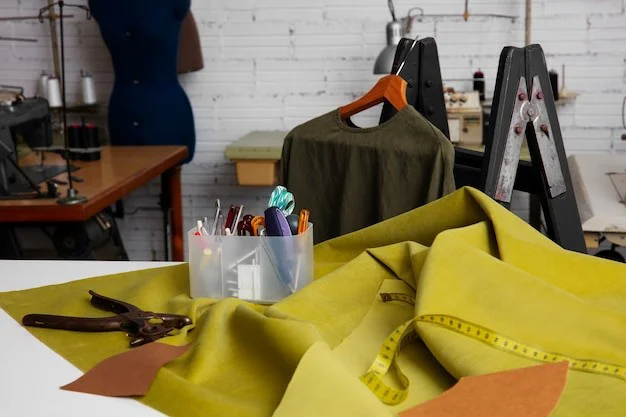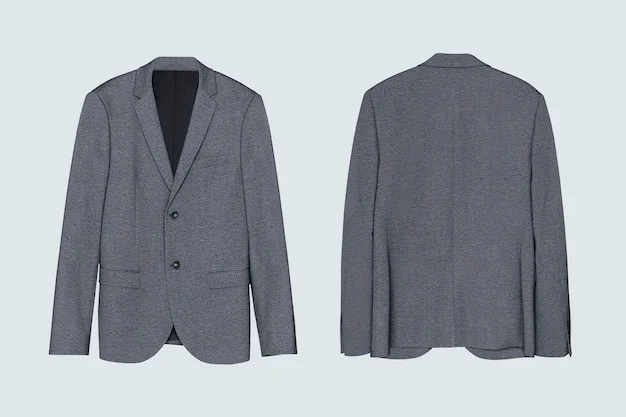
The fashion industry of custom apparel is evolving faster than ever. In 2024, it is experiencing tremendous changes with technology integration, sustainability, and personal expression.
Whether you are a business looking to make a statement or an individual seeking to highlight your personality and unique style, custom clothing is the answer. The rising trend of this year is personalization with fashionable green materials to cutting-edge digital designs. This article will explore the main trends in custom apparel that will inspire your customized wardrobes or brands in 2024.
Due to rising consumer awareness about the environmental impact of fast fashion, the custom apparel industry is seeing a significant trend of using eco-friendly materials in the supply chain and manufacturing.
Organic cotton, bamboo, and recycled polyester are becoming popular due to their exceptional quality and environmental benefits. These materials are soft and breathable, having a positive impact on the environment by reducing pollution and energy consumption.
These materials not only cater to customers inclined towards green strategies but also help you position your brand as socially responsible. Emphasizing sustainability will give you a differentiation edge over others by helping you create a unique product that will appeal to eco-friendly customers and inspire loyalty among them.
Zero-waste design is a revolutionary approach to fashion that minimizes fabric waste during production. By using precise patterns and cutting techniques, designers ensure that every inch of fabric is utilized, reducing the industry’s overall waste. This practice cuts down on material costs and lessens the environmental footprint of clothing production. Zero-waste design appeals to eco-conscious consumers who want stylish pieces without contributing to textile waste, making it a key trend in 2024's custom apparel landscape.
Zero waste design is a revolutionary fashion approach that minimizes fabric waste during production. Adopting cutting and sewing techniques with precise patterns decreases the waste aspect in the industry since every piece of fabric is used. This practice cuts down on material costs and lessens the environmental footprint of clothing production. Zero waste design targets consumers who are environmentally responsible and wear fashionable clothes without adding to the textile waste, making it a key trend in 2024's custom apparel landscape.

Ethical production is quickly becoming a growing trend within the custom apparel market due to consumers who are becoming more careful about their purchases and how they will affect society as well. More brands are committing to transparency, ensuring their clothes are made under fair labor conditions, with safe working environments and fair wages. This trend goes beyond sustainability, addressing the human side of fashion production.
Ethical production is crucial in responding to growing consumer demand for clothing that is not only environmentally friendly but also socially responsible. Brands that emphasize ethical production build trust and loyalty with customers, who increasingly seek products that reflect their values of sustainability and fairness.
For consumers more inclined towards clothing that reflects their unique identity, hyper-personalization is the answer. In addition to the basic parameters of color or size, customers also demand that each garment be constructed from scratch with bespoke prints, fittings, and styles for the individual. This is because people want to express themselves, and their clothing helps in this by having a story, a reason, or a purpose. With the availability of these hyper-personalization features, the growing demand for such a trend can be fulfilled by the brands by providing clothes that are made for each individual’s specific likes and wants.
High-level technologies such as artificial intelligence, 3D printing, and digital designing are changing how custom men’s wear and custom women’s clothing are designed. For example, AI-powered platforms recommend personalized styles by analyzing consumer data, while 3D printing offers features and intricate designs that have been unimaginable before. These technologies make the production process faster and more efficient, allowing the companies to make and sell a variety of highly manufactured clothing pieces. With the integration of advanced tech, custom apparel is becoming more accessible and precise, meeting the demands of modern consumers for unique, tailored clothing.
With the interactive customization tools, you can become a co-creator in the design process. Tools for interactive customization are transforming the relationship between customers and brands by making customers into co-designers. Virtual platforms allow customers to change anything from fabric selection to design components while viewing the changes in real time through interaction. Such flexibility can be achieved via Augmented Reality (AR) apps or 3D design tools, which allow the consumers to see how their custom creations will look prior to being made. It is this element of involvement that improves the brand-consumer relationship because it allows the customers greater input in the final product.
Athleisure is simply a fashionable style of sporty clothing and everyday casual wear that provides stylish yet comfortable outfits for physical activities. Performance wear is designed specifically to enhance athletic performance.
Unsurprisingly, athleisure is becoming extremely popular due to its combination of style and functionality, which meets today's dynamic and active lifestyles. Consumers are increasingly seeking versatile clothing that can transition from workouts to casual outings. And this trend of athleisure truly meets the demand of consumers to combine sportswear with everyday fashion.
Manufacturers of custom garments are capitalizing by introducing specialized athleisure pieces. In these, clients design their activewear from the ordinary to the very fit they deem necessary, making their activewear not only functional but also uniquely stylish.
Performance fabrics are the main reason for the popularity of athleisure. The moisture-wicking fabrics allow working out on demanding physical tasks without getting sweaty, while UV protection fabrics protect the skin from sunburns. Other advancements like temperature-regulating textiles adapt to body heat while still providing comfort to the user.
Such high-tech fabrics increase the utility of performance clothing and make it more comfortable and functional to wear. The Activewear approach in which performance fabrics are utilized by custom apparel brands is just a perfect combination of innovation and audience demand for active all-day wear.
Unisex designs are revolutionizing fashion by leaving behind the stereotypes of ‘Men’s Wear’ and ‘Women’s Wear.’ With a rise in demand for inclusivity, unisex as a fashion trend is a great way to cater to diverse preferences, making fashion more accessible and adaptable for everyone.

Today’s fashion is all-body-inclusive, so there is a need for sizing and fit that caters to all body types. Custom apparel brands are now going beyond the standard size range and offering extended sizes fitting many more shapes and proportions. This shift not only supports body positivity practices but guarantees that everybody will be able to find appropriate clothing tailored according to their specific measurements. So that everybody can feel confident regardless of their body type.
From gender-neutral styles to designs that celebrate culture, beliefs, or personal values, custom apparel allows individuals to express their unique identity. With more customization options, people can create pieces that resonate with their sense of self, making fashion a powerful tool for self-expression and representation.
Retro-inspired designs are making a strong comeback in custom apparel, blending nostalgia with modern trends. Drawing inspiration from iconic fashion eras like the 70s, 80s, and 90s, these designs feature bold patterns, vintage color schemes, and classic silhouettes.
Neon colors, oversized sit patterns like tie-dye, and old-fashioned styles with modern graphics in custom dresses allow consumers to revisit timeless styles while adding a personal twist. This trend appeals to those who appreciate the aesthetics of past decades and want to incorporate them into their current wardrobe, creating a blend of old and new.
Minimalism has become a dominant trend in fashion, reflecting a shift towards simplicity, intentionality, and sustainability.
Custom apparel focuses on minimalist aesthetics with clean lines and neutral tones. This trend embraces the "less is more" philosophy with understated designs that prioritize functionality and timeless elegance. Minimalist dressing tends to focus on single colors, classic style, and little or no embellishments, thereby making it easy to mix and change styles. This aesthetic appeals to consumers for its sophisticated yet effortless look, perfect for everyday wear or special occasions.
As the term suggests, sustainable minimalism involves the principles of minimalism as well as environmentally sound principles. By emphasizing quality rather than quantity, this trend fosters the production of long-lasting and classic products made of eco-friendly materials. Consumers who embrace sustainable minimalism prefer fewer, higher-quality items that reduce waste and environmental impact. This approach aligns with the growing demand for conscious consumption, offering a blend of simplicity and responsibility in fashion choices.
In 2024, the custom apparel industry is being shaped by significant trends like sustainable practices, advanced customization, gender-neutral designs, and the rising popularity of athleisure. Hyper-personalization and performance fabrics are in demand, as customers are looking for both functional and fashionable clothing. There are unisex designs, inclusive designs clothes and identity-driven clothes that are all moving the world of fashion to be inclusive and more expressive but there are also minimalist and retro trends where timeless beauty is preferred.
The future of custom clothing involves more innovations in sustainable fabrics, personalization using technology, and ethical production on a higher level. As new products and markets emerge, the custom apparel industry will still focus on individuality, sustainability, and comfort.
For businesses looking to stay ahead of these trends, Kutetailor is a professional and experienced supplier of made-to-measure apparel. They closely monitor market trends and update their product offerings every two weeks, ensuring that clients receive the latest in fashion and innovation.
In 2024, sustainable fabrics like organic cotton, bamboo, and recycled polyester are transforming custom apparel by offering eco-friendly options that appeal to environmentally-conscious consumers. These materials reduce waste, minimize environmental impact, and promote higher quality, positioning sustainability as a key factor in fashion choices and brand differentiation.
Gender-neutral fashion is gaining popularity in custom apparel due to its inclusivity and versatility. It breaks away from traditional gender norms, offering designs that appeal to a broader audience allowing individuals to express their style without being confined by gender-specific categories.
In 2024, performance fabrics are a key trend in custom apparel, offering functionality and comfort for active lifestyles. Fabrics like moisture-wicking, UV-protective, and temperature-regulating materials enhance athletic and everyday wear by providing durability, breathability, and versatility. These fabrics meet the demand for practical, high-performance clothing in athleisure and beyond.